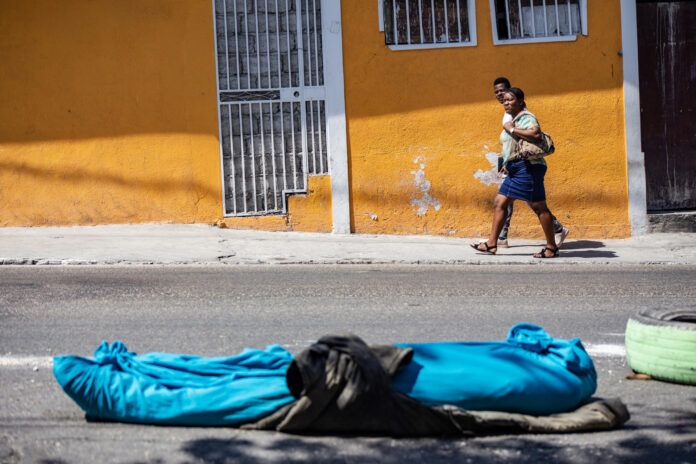
The streets of Pétion-ville, in the hills of Port-au-Prince, were once again littered with bodies on Wednesday, being the only commune in the Haitian capital not yet completely under the control of armed gangs.
At least seven bodies were found on Wednesday in Pétion-ville following another 15 discovered two days ago in the same area under circumstances that have not yet been clarified.
On both days the scenes were similar: bodies with gunshot wounds (on this occasion some were on fire and others already charred), the deceased placed into ambulances, and workers carrying coffins.
According to the Haitian National Police (PNH) on social media, during an operation in Pétion-ville, gang leader Mackandal was fatally wounded.
It added that, after shooting at a patrol car, three gang members were killed and two vehicles immobilized.
On the other hand, a police officer was murdered by armed men in Delmas 72, reported the national police union (Synapoha).
Violence is still present in metropolitan Port-au-Prince, despite police patrols and the state of emergency and curfew in Ouest department, where the capital is located.
In recent days, this violence has moved from the city center to various areas of Pétion-ville, where there are attacks by and clashes between gangs in their attempt to gain control of those areas, amidst intense shootouts.
On top of the existing insecurity, at the beginning of the month some 3,000 prisoners, including gang leaders, escaped from the two most important prisons in the city when the institutions were attacked by armed groups.
The functioning of the city has been severely impacted. There is almost no commercial activity, schools are closed and people are still fleeing their homes towards areas they consider safer.
According to the latest data from the International Organization for Migration (IOM), the escalation of violence in Port-au-Prince, which began at the end of February, has led to more than 15,000 people becoming internally displaced.
More than 86,000 Haitians now live in 84 displacement points, which is why schools, churches and public squares have become refugee centers, where many people live in unsanitary conditions.
Furthermore, according to the IOM, in less than a week 17,000 people left the capital in search of safety in other provinces, with the danger that travel entails, since the city and the roads are surrounded by gangs.
This United Nations agency estimates that, since the beginning of the year, in metropolitan Port-au-Prince the displaced population has increased by 15 percent and some 160,000 people cannot return to their homes.
Meanwhile, the evacuations of foreigners continue. On Wednesday, the United States evacuated 15 of its citizens by helicopter to the Dominican Republic. The State Department said that it expects to evacuate about 30 US citizens each day in this way.
Haiti awaits the implementation of the transitional presidential council, after which Prime Minister Ariel Henry will step down, and also the deployment of the of the multinational security support mission that Kenya will lead.






